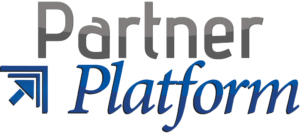
Agency Operations
Growing any business can be difficult, but it’s been especially tough for the insurance industry of late. Studies show the insurance sector’s growth rate is slowing, moving from 12.5% in 2006 to a predicted 3% to 5% seven years later. With such a significant growth decrease, agencies must do all they can to overcome growth obstacles.
What are some of those obstacles, and how can you combat them? We take a look at the common issues facing agencies and the best agency management system capabilities to break down barriers to success.
Challenge #1: Cost-Effective Marketing
Agencies are seeing more marketing competition direct from carries, and less support from the carries themselves in the marketing realm. This raises concern about how to stand out when you’ve got less to spend.
Data is the answer. The more you know about your customers and prospective audience, the better. With more knowledge, you can spend your dollars wisely, targeting audience segments and content with the highest ROI for your agency. Marketing automation and CRM software are essential in helping you collect better data, analyze more effectively, and deliver results faster.
Challenge #2: Industry Tech Advances
There are dozens of new methods and mechanisms in the industry. The key is to focus on those that matter and attack them first. Process digitization should be your first.
By digitizing processes, you can save time and money and deliver better service to your customers. A recent Harvard Business Review study found process digitization can deliver up to a 65% reduction in cost, 90% reduction in process turnaround time, and as much as a 20% increase in conversion rates. Plus, moving to paperless processes means decreased E&O issues.
Great digitization resources include integrated proposal creator, esignatures, and email in your management system. The more you can do without mailing, printing, and faxing, the better.
Are you up with the tech trends for the industry? See if you’re leveraging the best agency software
Challenge #3: Customer Barriers to Entry
Insurance is already a hard sell as it’s not seen as a necessity. Add to that a cumbersome underwriting process, and you’re making it less likely for leads to convert. Again, paperless or digitized processes and integrated systems will alleviate much of that pain.
In addition to paperless and integration, a client portal makes it easier for customers and prospects to do business with your agency. A client-facing portal allows constituents to make changes and get the information they need instantly, making them much more likely to come back again.
Challenge #4: Fear of E&O
Errors and omissions are always on your mind, but even more so with increasing security threats and more stringent industry regulations. You can put these fears at ease with paperless processing of information and integrated systems as well.
By digitizing documents and processes, you can be sure you won’t misplace or be unable to understand documentation. Integrated systems like email and texting help you accurately track customer interactions so you can go back and confirm information easily. Both are designed to keep you and your customers safer.
Challenge #5: Customer Expectations
Tech advances have amped up customer expectations across industries. A Salesforce.com report found more than 70% of customers expect businesses to change their service based on customer interactions. That means you need to understand customer expectations and adjust your services to meet them.
The good news is J.D. Power already did the work for you: a 2018 Auto Insurance Study found customers with the highest auto insurance satisfaction cited access to self-service tools and mobile apps as the top two things that make them happy. Start with these two customer-focused tools and you’ll be on your way to keeping up with expectations.
Dive deeper into what customers really want on our blog
Challenge #6: Lead Generation
You knew you’d find lead generation on this list. It’s the number one issue for most businesses, and insurance is no expectation. The best and most effective tool to increase your leads is a CRM (Customer Relationship Management tool). CRMs are built for lead management and provide you with a host of data to help you target and grow leads more effectively.
One way you can leverage a CRM is to identify your agency’s niche markets. For example, maybe you see you’re providing coverage to multiple emergency vehicle fleets or that you have a knack for serving those with lifelong health conditions like diabetes. Refine your services to meet these niche areas and you’ll find great success in targeted markets.
Gain more insights on Insurance Prospecting as an Independent Agency here
Getting Ahead of Roadblocks with Partner Platform
Our Partner Platform Community is focused on identifying obstacles and working towards solutions to support our agencies. Our most recent Partner Platform additions, Partner Connect and Producer Results Manager, are just a piece of what we have to keep our agencies equipped for whatever comes next.
Hear from the agencies themselves on our client stories page and see for yourself when you view a demo at sispartnerplatform.com.

Agency Accounting
When it comes to accounting, many agency owners want to throw up their hands. From accounting software to best practices for managing your book of business, it seems the world of insurance accounting is simultaneously critical and complex.
It doesn’t have to be this way. We sat down with two authorities in the insurance accounting field, asking everything from “What’s the best accounting software for insurance agents?” to “How can owners avoid accounting issues?”
Our experts today are SIS Director of Product Management Bryce Lee and CPA and Partner at Donovan, Sullivan, and Ryan, Chris Ryan. With over 25 years combined experience, Bryce and Chris have a lot to share about how to manage finances in the industry.
—-
When it comes to accounting, what are some common questions you hear from clients?
 Chris: At Donovan, Sullivan, and Ryan, we discovered the independent agency market needs someone who understands their nuances and speaks their language. Over the past 25 years, we’ve focused on specializing in serving independent agencies and found there are four main problem areas for most agencies. What we hear about most are issues with management and accounting system efficiency, how to streamline administrative tasks, help with staffing, and questions around agency perpetuation. We’re usually dealing directly with the owner in these areas who, especially in smaller agencies, is acting as the accountant as well.
Chris: At Donovan, Sullivan, and Ryan, we discovered the independent agency market needs someone who understands their nuances and speaks their language. Over the past 25 years, we’ve focused on specializing in serving independent agencies and found there are four main problem areas for most agencies. What we hear about most are issues with management and accounting system efficiency, how to streamline administrative tasks, help with staffing, and questions around agency perpetuation. We’re usually dealing directly with the owner in these areas who, especially in smaller agencies, is acting as the accountant as well.

Bryce: We’ve worked with agencies ranging in size, specialization, and experience from all across the country. The most common questions I hear are around the Client Ledger. Often, clients are looking for advanced reporting or help with reconciling accounts. For commercial agencies, we get questions around Direct Bill Commission download and how it synchs with the Partner Platform system.
What issues do your clients face and how do they manage them?
Bryce: Usually, calls we get are about fixing a mistake and how to correct it in the Partner Platform system. We also hear from agencies who need to find a transaction to correct a book imbalance. The third most common is ensuring they have their systems set to correctly pay commissions automatically. It’s minor things as they get used to the system, and then they’re off and running.
Chris: We also get calls about how to fix an issue or how to use a system. We tackle this by providing training to clients on their specific systems and offer monthly reconciliations to avoid errors that could cause long-term issues.
We also work with agencies to handle administrative tasks in a low-cost manner. Most of the issues are around bill processing. Agencies use direct bill whenever they can, but it’s not always an option. We provide three different levels of monthly accounting support to free up time for owners, allowing them to focus on growing their business without having to hire an internal accountant.
Let’s talk accounting software for insurance agents. What do you see clients using, and why do they select those tools?
Bryce: There’s not a lot of accounting tools out there. They either use QuickBooks or Peachtree, or an integrated accounting system. Some may go for a third-party payroll company as well. Most of our clients go for names they know, or a tool they know is made for accounting or payroll specifically. What they may not know is that an integrated system can do all those things without needing to buy something new.
Chris: In many cases, we see an agency using a management software with an accounting element, but they’re not using that accounting element. When asked why we hear, “it just didn’t make sense,” “it’s confusing,” “it’s not user-friendly” and so on. It seems owners learn the management system side and by the time they get to the accounting, they’re burnt out on learning. So, they turn to QuickBooks as something more intuitive with a faster learning curve. It’s a shame because the integrated accounting systems can save them a lot of time, money, and energy.
What are the pros of integrated accounting versus an external system like QuickBooks?
Chris: Though the ease of QuickBooks is appealing, we always advise clients to use the integrated accounting systems. With integrated accounting, agencies can take advantage of the synergies of the software. If they go over to QuickBooks, there’s duplication of efforts and extra work. They’re underutilizing the agency software (that they’re paying for). We cringe when see agencies investing time and money into these robust systems and then putting everything into QuickBooks. It’s more effort, and it doesn’t need to be like that.
Bryce: Though we don’t recommend an agency use a general accounting system, we see clients who use them to manage their business. Reporting is a huge deal. The amount of data that flows from a management system to QuickBooks simply isn’t sufficient for an in-depth analysis of the agency’s financials.
Agencies tend to have more than one bank account, and often several different accounts need to be managed. It’s messy to manage multiple accounts in QuickBooks and usually requires multiple subscriptions. Partner Platform’s accounting system is designed to handle multiple accounts, and everything is contained in one system. General accounting transactions are managed much better when in a single system. Anytime a user must jump from one system to another, it creates more steps and a separate user experience.
How has integrated accounting in the Partner Platform benefitted your clients?
Bryce: Accuracy and efficiency are the two significant benefits we hear from our clients. Commissions management is one piece we hear about most often. Our direct bill commission allows agencies to set it up once and never have to worry if commissions are running again. And, our system allows for import of direct bill commissions, even if the carriers don’t offer direct bill commission download. That alone can save an agency dozens of hours a month.
 Chris: We found Partner Platform’s accounting is easier to understand for most of our clients. It’s user-friendly and integrates really well. In many cases, clients who convert to Partner Platform abandon QuickBooks for the Partner Platform accounting system because it makes more sense to them. That’s a huge help because it streamlines processes, reduces errors, and makes the potential headache of accounting that much easier for our clients. That translates into smoother conversations down the line, especially when it comes time to evaluate next steps in selling or passing on an agency.
Chris: We found Partner Platform’s accounting is easier to understand for most of our clients. It’s user-friendly and integrates really well. In many cases, clients who convert to Partner Platform abandon QuickBooks for the Partner Platform accounting system because it makes more sense to them. That’s a huge help because it streamlines processes, reduces errors, and makes the potential headache of accounting that much easier for our clients. That translates into smoother conversations down the line, especially when it comes time to evaluate next steps in selling or passing on an agency.
What’s one final piece of advice you’d give to agency owners?
Chris: Investment in an management system with integrated accounting is an essential part of a well-managed agency, and a well-managed agency acts as an annuity for its owners. Agency owners need to exploit the technology available to them, utilizing it to automate as many agency operations as possible so they can focus on growing their business.
An owner should focus on making management decisions to get the highest possible sale price rather than getting dragged down in daily administrative details. Leveraging technology to its fullest capabilities is critical. All agencies should take advantage of software that integrates, streamlines, and has cross-referencing capabilities as much as possible.
Bryce: Always stay involved in your bookkeeping process and understand your numbers. Financial management is key to your business’ success. Too often, we hear horror stories of a bookkeeper mishandling accounts, leaving the agency and owner to clean up a mess they don’t understand. It’s too dangerous not to know what’s going on in your agency, and an integrated system ensures you have a handle on all the data.
—–
Want to know more? Hear directly from Partner Platform clients on their experiences with integrated accounting on our Client Stories page and get in touch with us to find out how to sync your systems today.

Technology Trends
We’re more than halfway through 2019, and as the days continue to get warmer, this year’s tech trends are heating up, too. We took a look back at some 2019 digital insurance trend predictions to see if they still hold up. What we found was many have moved from “up and coming” to “here to stay.” Here are the top six you need to embrace before the year comes to a close.
Top 6 Digital Insurance Advances to Embrace by 2020
- Cloud storage and security
As many as 7 out of 10 insurance carriers today utilize cloud technology, and it’s no surprise why. Cloud storage is scalable, flexible, and secure, allowing your business to grow while staying safe. With the rise of data protection trough the General Data Protection Regulation (GDPR) in Europe and consumer privacy legislation in seven states, protecting client data is quickly becoming a must.
Find out more about data privacy regulations and how to keep your agency safe
- Data-informed decision making
The data you’re protecting can be put to good use through predictive analysis. Info gathered from marketing automation and CRMs can tell a lot about where a consumer will go next. Smart devices in cars and homes also provide valuable info. All this data can be used to establish pricing, predict risk, and identify customers looking to add lines or those at risk of cancellation.
- Omnichannel outreach
While phone calls and mailing still work, almost 90% of retailers recognize that an omnichannel approach is necessary to win business. This means reaching out to customers via multiple channels, like social media, email, and through texting or an agency mobile app. The more ways you’re engaging with prospects the better.
See how to leverage an omnichannel marketing approach for your agency
- Self-service tech
Customer-facing mobile apps and self-service portals are now the norm in the industry. A recent Microsoft survey found 90% of users expected an online portal with mobile access from their providers. Customers want to access the information they need the moment they need it, and these self-service methods allow them to, without you having to do any extra work. Plus, info from customer and prospect interactions with these tools can feed back into your marketing and lead nurturing systems to help you win more business and keep more customers.
- Chatbots and other A.I.
Artificial intelligence (A.I.) and chatbots are no longer a thing of the future – they are here and now. Both are becoming standard in many customer-facing industries, including insurance. Some estimates show that by 2025, 95% of all customer interactions will start with chatbots. Through a chatbot, customers and prospects can get questions answered fast or be directed to the right contact quickly. Bots can save time, provide more immediate service, and overall streamline operations.
- Commercial lines comparative raters
Comparative raters have been popular with personal lines for years, but now it’s commercial lines’ time. Tech advances made it possible to scan through hundreds of commercial lines offerings to find the best for your customers and prospects. Such fast processing is now the norm, meaning agencies without comparative rater abilities will be left behind.
Find out how to leverage the latest technology for your agency here
Finding a Management System that Can Keep Up
With the rapid pace of these tech advancements, it’s important to take a look at current systems and ask: will we make it to 2020 and beyond with this? At SIS, we’re confident our clients will all say, “Yes.”
Our Partner Platform agency management system suite is specifically designed to keep up with changing technology. As tech has evolved, we’ve added elements like our Marketing Automation Manager, Producer Results Manager CRM, and now customer engagement suite Partner Connect. With Partner Connect, agencies get an all-in-one integrated client outreach and support system, including a client portal, branded agency app, and mobile-ready website all connected to a high-powered agency management system.
Learn more about Partner Platform and view a demo today at sisparterplatform.com.

Perpetuation
Whether it’s year or decades off, you can be doing something right now to impact your agency’s perpetuation. Each day is an opportunity to increase your value, all you need is the right insurance agency support tools and methods.
Essential Tools to Elevate Your Agency’s Worth
- Customizable agency management system: Notice we didn’t just say “agency management system” – that “customizable” piece is what makes the difference. Invest in a system that adapts to your agency’s specific needs, with room to grow. You want a system you’ll instinctively use every day, tracking and analyzing data that’s critical to assess your value.
- Integrated accounting: Accounting integration is an essential piece in your management system. With integrated accounting, your policy, client, and financial data is stored in one place, so you get a clear picture of where your agency stands.
- Customer relationship management tool: Also known as a CRM, a customer relationship management tool helps producers better manage their sales pipelines. With an integrated CRM, agents can turn even more prospects into lasting clients, adding to your overall agency value.
Find out how to leverage your management system to track agency progress
- Stellar customer support elements: The top three customer support tools to have are: an intuitive and informative website, agency customer portal, and customer agency app. Each of these three is part of a trifecta of reliable customer support, leading to higher retention rates and attractive growth potential.
- Secure cloud hosting: Safe data means a safe future, and a secure future means higher value. Ensure your agency’s data is protected on cloud servers with redundant back-ups and multi-character encryption for increased security.
Steps for Perpetuation Prep
- Pay attention to cash flow
Current and projected cash flow make buyers take notice. That means your accounting needs to be accurate and your growth needs to be steady. Invest in quality marketing and customer service to maintain a steady influx of new customers and base of lifetime clients.
- Focus on cost reduction
Your income will look even better when next to lowering expenses. Pay attention to ways you can reduce waste or streamline processes, knocking down your superfluous output. Tech advances like paperless processing, e-signing, and streamlined document management are game-changers here.
See what our partner agencies had to say about perpetuation in the SIS Perpetuation Survey
- Hire right, and get them to stay
Investing in tech is one of the ways to create value for your agency. Another is hiring the right people. The knowledge and experience possessed by your staff are invaluable assets. Knowing your team’s value, build in funds to offer stay bonuses to keep them around after you retire. You want to pass on an agency with the team that helped build it.
- Identify a successor
Part of hiring right is hiring with your departure in mind. Identify potential successors early on and put time into mentoring them. Regardless of whether they’ll be buying, you need to have someone in place to take over the reins when it comes time to retire.
Look for someone who possesses superior leadership skills, is willing to learn, and wants the job. Too often, agency owners want to pass on their business to their children, but the next generation has no interest. Be sure your selected successor is in it for the long haul.
Should you pass on your agency or sell? Get tips on how to decide here
- Know (and commit to keep to) your role
Now is the time to decide how you’ll be involved after passing on your agency. Don’t wait till the moment comes to make a decision! Chances are you will have more emotional attachment that you expect and may not make the right choice. Be specific in your succession plan how you’ll stay connected (or not) once retirement rolls around.
Ask yourself these 5 questions when preparing your agency for perpetuation
Prepping for the Future, Now
What you do today has a significant influence on your agency’s (and your) future. You need the right tools to help you do business well today and improve it for tomorrow.
Partner Platform and SIS are here to help. With integrated accounting, a Producer Results CRM, and other agency valuation and business tools, along with a dedicated SIS team and Partner Community, you have all you need to thrive today and for years to come.
Set up your agency up for success – contact us at [email protected] today.

Marketing, Sales
Insurance retention is a critical piece of agency success. We all know the stats: it is far easier to keep a current customer than to search for a new one. Recent studies show it costs 5x more to hook a new customer than to keep an existing one. With stats like these, it’s easy to see where you can make the biggest bang for your buck: cross-selling
Cross-selling is the practice of selling additional policies to an existing customer. These could be adding home to auto or life to medical among others. It can also be adding an extra policy for a child, spouse, or another family member. Anything that tacking on to a customer’s existing policy is a cross-sell.
So, if cross-selling is so important, how do you do it? Here are three steps to help you spot, nurture, and close a cross-selling opportunity.
Get tips on how to improve your overall insurance customer retention here
Spotting an Opportunity
To make a cross-selling sale, you need to know what to look for in your customers. Start by segmenting your customers into groups by gender, location, age, and other defining factors. You can use these segments to look for patterns. When you successfully cross-sell to a customer in a given segment, start looking for opportunities with other customers in that segment.
Life changes are major cross-selling indicators. When a customer gets a new car, has a baby, gets married, buys a new house, or retires, they will likely need to update their coverage. Take these opportunities to introduce potential coverage additions. Leverage your CSRs and agents to gain information on coming life changes as they spend the most time talking with customers. Have a centralized place (like a CRM or agency management system) to track interactions to get an idea of who may be looking for coverage updates.
Customer content engagement can also be telling. Someone who liked a tweet on choosing the right vehicle for your family and attended a webinar on “The Ins and Outs of Auto Insurance” is sending signals. With marketing automation, you can track these engagements and spot an opportunity from a mile away. And, you can nurture this lead by sending targeted content on auto policies and an opportunity to set up a consultation with an agent.
See how you can leverage your place as an independent, community-based agency
Tracking and Nurturing
As mentioned, marketing automation is excellent for nurturing cross-selling leads. Utilize it to keep customers engaged with regular newsletters and holiday and birthday greetings, and nudge them along with customized content based on their interactions. One critical piece of custom content is an automated renewal reminder 60-90 days before a policy’s end date. This email should include info on possible cross-sell items based on what you know from your marketing automation data.
The other prospect management tool you need is a Customer Relationship Manager (CRM) to bring everything together. When synced with your marketing automation, your CRM can tell you precisely the right moment to make the pitch. This marketing automation data, along with info on a prospect’s interactions with agents and CSRs, tell you exactly what a prospect is looking for and when they’re primed to make a purchase.
Find out how to improve your customer relationships on the SIS blog
Making the Sale
When it comes time to make your pitch, the most important factors are to give options and make it personal. You want the prospect to recognize that you understand their unique needs, and you want them to be in control of deciding what’s best for them.
That personal connection and ability to offer choice are what drive our Partner Platform Proposal Creator. This intuitive tool allows you to make high-quality, agency-branded proposals in minutes. With its ease, quickness, and professionalism, you can give your customers multiple custom proposal options well within your sales window.
Find out more about the Partner Platform Proposal Creator, and our Marketing Automation Manager and Producer Results Manager CRM, today at https://sispartnerplatform.com/contact-us/.
Page 17 of 34« First«...10...1516171819...30...»Last »









